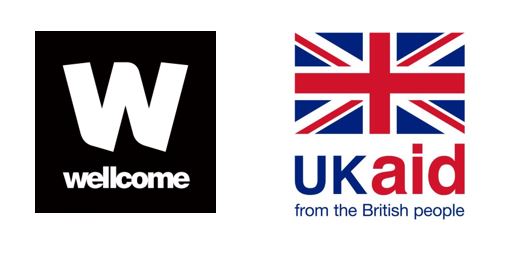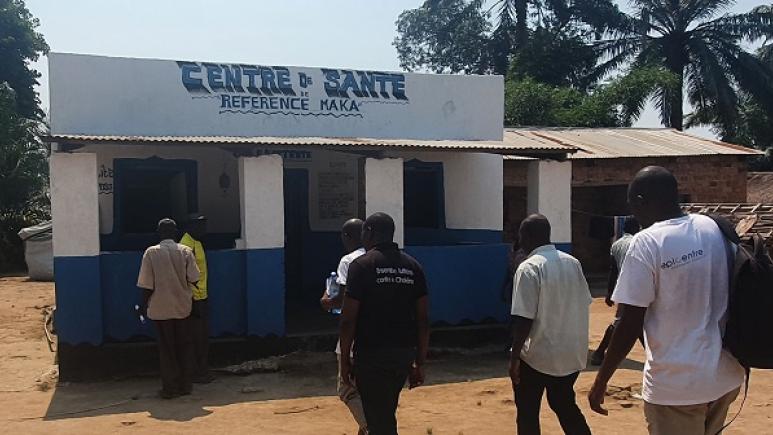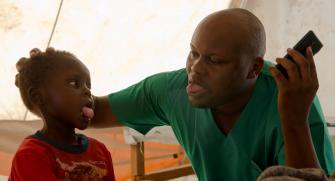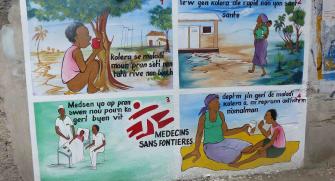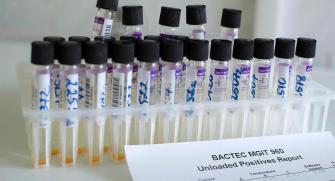Mass vaccination and investigation to halt cholera in DRC
Despite a downward trend in the number of cholera cases in the DRC, the country remains the third highest in the world in terms of incidence and the second highest in Africa. In 2021, more than 12,000 cases were reported along with 209 deaths. To curb the disease, a three-year vaccination plan for 2018-2020 has been developed and implemented in the country. It targets the 5 provinces regularly plagued by cholera epidemics, namely North Kivu, South Kivu, Tanganyika, Haut Lomami and Katanga.
"In order to evaluate the impact of these vaccination campaigns, we have implemented a study with MSF teams and the National Programme for the Elimination of Cholera and the Fight against other Diarrhoeal Diseases over the past year. The study is financed by the Wellcome Trust, UK AID and the Commonwealth and Development Office, a global charitable foundation, and has two sites, one urban site in North Kivu and one rural site in Haut Lomami", explains Anaïs Broban, head of the study at Epicentre. The study has three components
- clinical surveillance to measure the incidence of cholera in at-risk areas targeted by vaccination,
- serological surveys to measure prevalence over the past 12 months,
- and the identification and follow-up of individuals diagnosed positive among participants in the clinical surveillance or serological survey, as well as their household members.
Searching for Vibrio Cholerae in households
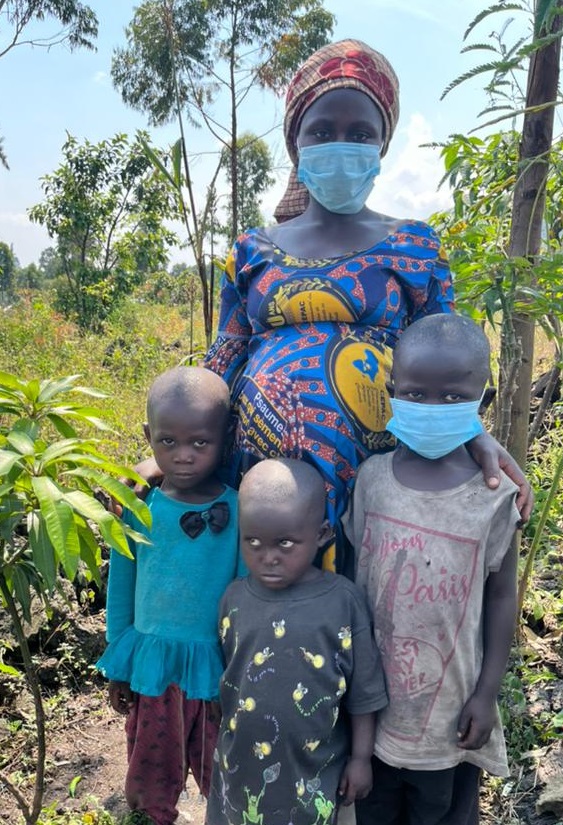
“At the end of May, we started this last part of the study," explains Emily Briskin, epidemiologist at Epicentre. “We are studying where the bacteria that causes cholera hides in households. It should give us a better understanding of the disease and improve prevention.”
As soon as a case is reported, investigators are sent to the household concerned. If they obtain the agreement of the household, they ask the members about their exposure to cholera and their risk factors. They also take stool samples from the various members of the household, as well as environmental samples from dishes, water and latrines. The aim is to find out if there are any traces of the disease-causing Vibrio Cholerae bacteria and if there are any healthy carriers in the household. The disease is transmitted by drinking water or eating food contaminated with the faeces of infected people, but to date the reasons for the persistence of the vibrio remain unclear. "We don't know why new cases are occurring and whether they have been contaminated by healthy carriers or by the environment," adds Rachel Mahamba, operational research coordinator for the study.
Other samples will then be taken at regular intervals, on the 4th day, the 1st week, after 2 weeks, 1 month, 3 months and 6 months. In all, two investigators and six community health workers have been trained and will be working for the next 12 months to collect samples," says Rachel Mahamba. They are generally well received by families and households.As one participant, Ms. Nyirasabimana explains to the interviewer: "We wanted to participate because we believe that through the results of your study, you can help bring the appropriate treatment against cholera to our community. Given the current situation, especially since we drink green water from the lake and that is not even treated, and that is why the cholera disease persists since it happened in my household by reaching a child. And that is why we wanted you to help us with prevention so that the other members of the household, as well as the neighbours are not also affected. That is how I understood, through what you told me about the reasons for your study, that it is possible that by answering the questions put to me, that my answers will help so that another of my children or myself, as well as the neighbours, will not be affected by this disease that persists in our area.”
3 June 2022: a restitution of the first results
While waiting for the full results of this study, a workshop was held in Goma on 3 June to review the first year of its implementation, and initial encouraging results were presented. For the Goma site, more than 1,000 suspected cases have already been included in the surveillance activities. Of these suspected cases, 30% were confirmed as infected with cholera by culture and 10% were vaccinated with at least one dose. A first seroprevalence survey was completed in the general population of the city in mid-February, during which 557 blood samples were collected, and just over 40% of participants were found to be vaccinated with at least one dose.
In the Bukama rural site, starting in October 2021, more than 400 suspected cholera cases were included during the 2021-2022 rainy season, with a culture positivity rate of around 50%. The first seroprevalence survey took place in October 2021, prior to the implementation of vaccination campaigns in the area, with 555 serum samples collected. This survey will be repeated next September to assess the impact of the campaigns.
The study will continue over the next year and further projects, including investigations of current vaccination coverage and reasons for non-vaccination, are also being considered to better understand these initial results.
This study should provide important information on cholera in the DRC, a country that has been plagued by regular outbreaks since the first detection of Vibrio Cholerae in 1974, and where some areas regularly experience a resurgence of the disease and it is therefore considered endemic.
Photo Credit: DR/Epicentre
